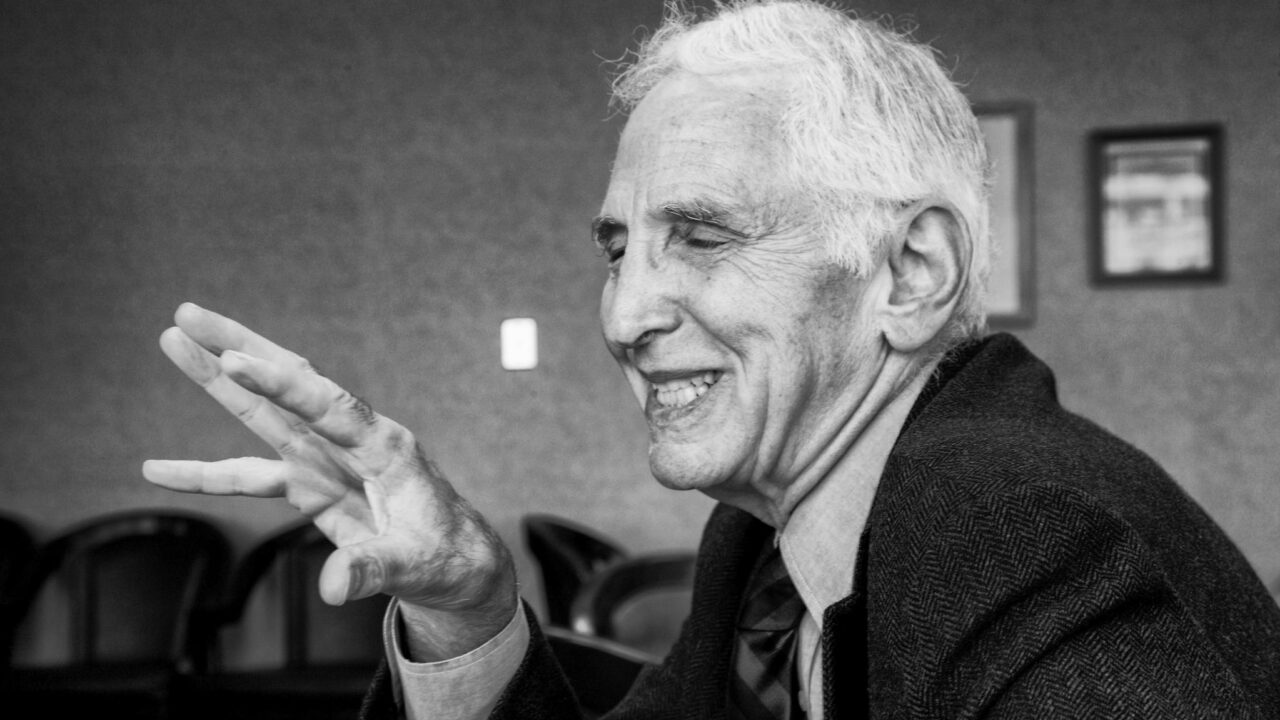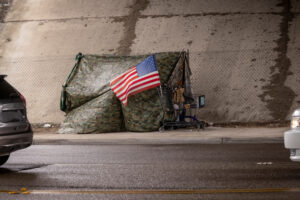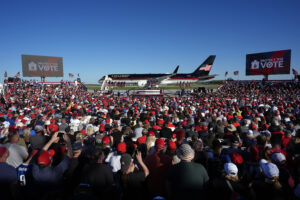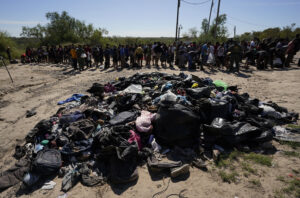Daniel Ellsberg’s Political Courage
Pennsylvania State Senator Nikil Saval writes a tribute to his hero. Daniel Ellsberg by Michel Christopher via Wikimedia Commons / CC BY-SA 3.0
Daniel Ellsberg by Michel Christopher via Wikimedia Commons / CC BY-SA 3.0
Daniel Ellsberg lived a life defined by the accumulation of high-level knowledge and punctuated by famous acts of political courage. Many people act courageously; fewer people have high-level knowledge, and fewer of these display any courage at all. The connection between courage and knowledge, and the willingness to risk the consequences of drawing that connection, is what distinguished Ellsberg, to the point that the combination of resolve and discipline seemed to have few parallels or antecedents. In his time, he resembled the Buddhist monks who set themselves on fire in protest. Reaching further back, he was a sort of Lorenzo Valla of the war in Vietnam, exposing its entire basis—and that of the largest warmaking machine in world history—as a forgery, undergirded by a spectacular level of coordinated deceit.
Ellsberg’s heroism is concentrated in a single, spectacular action: the leaking of the so-called “Pentagon Papers”—properly, the “History of US decision-making in Vietnam, 1945–1968”—to reporters at the New York Times and, when the Times was subjected to an injunction that kept it from publishing the papers, the Washington Post. (Ellsberg also photocopied items related to nuclear armament and deterrence, which he wrote about it in his last published book, The Doomsday Machine.) The Pentagon Papers themselves have an extraordinary origin story, having been commissioned by Robert McNamara while he was Defense Secretary, as an attempt to explain, in part to himself, American entry into a war that he had escalated and prosecuted, at the cost of thousands of American, and millions of Vietnamese, lives. Ellsberg had contributed to the study, but only read it in its entirety in 1969, after photocopying it.
The drama of Ellsberg’s life, however unique his circumstances, isn’t alien or inaccessible, because it is also the drama of a political life as such.
The Pentagon Papers were a documentary history, told from the perspective of the war’s prosecutors, intended show how things had gone wrong in Vietnam, and how implicitly a different course of action at different points might have saved the effort. It revealed a much worse history, in which top-level officials knew at virtually every point that the war was going to fail. Presidents went on to escalate it anyway, and to sell it to the American public. What officials claimed was that the war had come about as a late-breaking intervention to support a single, beleaguered side against the Communists in a civil war. What the Papers revealed was that the war was part of a continuous story of decades of American aggression against Vietnamese national self-determination, beginning with arming and supporting the French colonial war in the postwar period. Much of what diplomats, military officials, and successive American presidents did was concealed from the public, and even from other Pentagon officials such as Ellsberg, while describing alternative bombing programs against Vietnamese civilians as needing “to reach their threshold of pain,” or needing “one more turn of the screw.” As Ellsberg’s wife Patricia pointed out, this was the language of torturers.
“For some years I had seen the war as an involvement that should be ended and that above all must not be escalated,” he wrote in his 2002 memoir, Secrets. “That attitude I shared, as far as I knew, with most of my colleagues with experience of the war in Washington or Saigon.” But after reading the Papers, he wrote,
I no longer shared their view of the war as a worthy effort gone wrong or gone too far, as a case of good intentions that failed of their legitimate, though perhaps infeasible, aims. It was impossible to see in that light the history I had now read of our nine years of diplomatic support of the French claims of sovereign ownership of a former colony that had proclaimed independence with full popular support; above all, the last five years of the French effort at military reconquest, in which he had urgently pressed the French to continue their military struggle against the independence movement and funded it almost entirely. Nor did the nature of the conflict change in 1954, when the American paymasters of the indigenous colonial administration and colonial army ceased delivering their funds through the French and directly paid their former collaborators. Nothing after that had changed it fundamentally either.
Not everything that was in the Papers was new, and for those who had followed the war it contained few startling revelations. Its bombshell effect came from its singular nature: a study by the establishment in which the establishment plainly revealed its own cynicism, willful blindness, and murderous resolve. “Nearly all decisions in this disastrous enterprise,” Hannah Arendt wrote in an essay on the Papers, “were made in full cognizance of the fact that they probably could not be carried out.” And so the decisions, and lies to cover up or rationalize those decisions, were made “not so much for their country, certainly not for their country’s survival, which was never at stake, as for its ‘image.’” There was no number of Asian lives that could satisfy such an effort.
After reading the Papers, Ellsberg understood the war as on its own merits a “crime. An evil.” “If the war was unjust, as I now regarded it, that meant that every Vietnamese killed by Americans or by the proxies we had financed since 1950 had been killed by us without justification. I could think of no other word for that but murder. Mass murder.”
The drama of Ellsberg’s life, however unique his circumstances, isn’t alien or inaccessible, because it is also the drama of a political life as such: the steady, growing awareness of one’s participation in a system that one understands to be intolerable, and the eventual action that breaks with it. On this path, he was helped along not just by the antiwar movement, but by a number of others who were somewhere along the same path, even if they didn’t end up where he did. As he described it in a letter he quoted in Secrets, these were “fanatics, mavericks, non-team-players, fluent speakers of Vietnamese, old Vietnam hands who have hung on or gotten back, or have found a place on their own that keeps them in Vietnam. They are mostly distrusted or handled with great reserve by their organizations, because they care too much, because they are arrogant and contemptuous of the majority of uninvolved, not very highly motivated Americans who necessarily fill the ranks. . . . More and more come to suspect that these men are essential: that we simply cannot succeed without them.” A disparate, jaundiced group of Vietnam War participants, largely disabused of any fervor or belief, helped make up, in the aggregate, the motive force for Ellsberg’s eventual break with the American war machine.
What makes Ellsberg extraordinary is how much he concentrates in a single narrative the ordinary nature of political transformation, from crushing disillusionment to radical clarity to concerted action. Many people who arrived at Ellsberg’s beliefs did not need to go to Vietnam, let alone work as a high-level Pentagon official and sift through multivolume top-secret studies, to know that the war was wrong. In the access he had to the system he exposed, he is completely unusual. But nearly everyone who shares his beliefs has gone through similar emotional registers, through moments of profound shame and understanding. In Secrets, the slow accretion of knowledge and political consciousness culminates in a scene in which Ellsberg essentially has a nervous breakdown—a breakdown that in its overwhelming singularity stands in for all such political transformations, everywhere. After hearing a speech at a rally in Philadelphia in which a draft resister, Randy Kehler, describes to the audience how he can “look forward to jail, without any remorse or fear,” because he knows that “everyone here and lots of people around the world like you will carry on,” Ellsberg rises to give him an ovation with everyone else, but then falls back into his seat:
I was crying, a lot of people must have been crying, but then I began to sob silently, grimacing under the tears, shoulders shaking. . . . I got up—I was sitting in the very last row in the amphitheater—and made my way down the back corridor till I came to a men’s room. I went inside and turned on the light. It was a small room, with two sinks. I staggered over to the wall and slid down to the tile floor. I began to sob convulsively, uncontrollably. I wasn’t silent anymore. My sobbing sounded like laughing, at other times like moaning. My chest was heaving. I had to gasp for breath.
The passage moves from this scene to a statement of clarity about what the war is doing to the country and the world (“We are eating our young”) to the question that motivates the fateful actions to come: “What could I do, what should I be doing, to help end the war now that I was ready to go to prison for it?”
For me, Ellsberg was the moral exemplar of such a radicalizing process: someone who undertook action at a scale that was in proper proportion to what he felt and knew.
Though what Ellsberg did seemed to make good on all the guilt he had accumulated, he never ceased to feel that he had acted too late and had done too little. Rather than identifying as a model for political courage, he consistently presented himself as a cautionary figure: there were too many Daniel Ellsbergs, their names unknown, unwilling to divulge everything they could—and even when they did, doing so late in the game. Secrets came out during the invasion of Afghanistan, a documentary called The Most Dangerous Man in America as the murderous divagations of the War on Terror proliferated. He appeared frequently in public, mournful and prophetic. In a September 2010 conversation with Jill Abramson, then–managing editor of the New York Times, Ellsberg did not miss an opportunity to attack the newspaper for holding a story on NSA wiretapping for over a year. “Not only for a whole year,” he said, “but very critically, past the election of 2004. I think it’s quite possible that the revelation that the president had, for three years, been blatantly violating the law”—at which point Abramson interrupted him to remind him that there were “still people today who argue that the NSA program was the crown jewel, the most valuable anti-terrorism program that the Bush administration had going.” He continued breaking into tears at the thought of how much more he could have done, and how much earlier he could have acted. “I will always deeply regret that I did not make known to Congress, the American public, and the world the extensive documentation of persistent and still-unknown nuclear dangers that was available to me half a century ago,” he wrote in 2018’s The Doomsday Machine. “Don’t do what I did.”
A war—the War on Terror—was responsible for turning me to the Left, and through the moments bewilderment and painful insight that attend any political radicalization, I looked to Ellsberg as a model. For me, Ellsberg was the moral exemplar of such a radicalizing process: someone who undertook action at a scale that was in proper proportion to what he felt and knew. Taking such a person to be your hero, as I did, can be debilitating, even an inhibition to action. Just as you would never be in the Sartrean position to refuse the Nobel Prize, no occasion to do what Ellsberg did can ever come your way. The usable lesson to deduce from his example, which came to me later, was in fact what Ellsberg had said repeatedly: the crime of Vietnam was a collective failure, the inability of so many to act with decency, and to do so in concert. Only organized, collective, and creative action could ever overcome such a system.
In the late 2000s, I attended an antiwar rally in San Francisco, some years into the time when rallies against the wars in Afghanistan and Iraq had become largely anemic affairs, filled with largely the same faces. This belied the fact that the antiwar movement had had some success: drawing on deep reserves of distrust that figures like Ellsberg had fomented, they had turned American opinion against the war in a matter of months, with former supporters abjuring their votes and statements. Ellsberg himself spoke at the rally, and I went to find him afterwards to tell him he was my hero. He was headed to a car, which was being driven by someone I recognized from meetings of Solidarity, a local socialist groupuscule. “What?” he replied, and as he turned I noticed his enormous hearing aids. I tried to speak up: “You’re my hero!” He smiled, shook his head as if not comprehending, got into the passenger side, and left.
Your support matters…Independent journalism is under threat and overshadowed by heavily funded mainstream media.
You can help level the playing field. Become a member.
Your tax-deductible contribution keeps us digging beneath the headlines to give you thought-provoking, investigative reporting and analysis that unearths what's really happening- without compromise.
Give today to support our courageous, independent journalists.






You need to be a supporter to comment.
There are currently no responses to this article.
Be the first to respond.